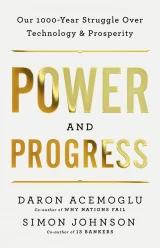EconomicDynamics Newsletter
Volume 24, Issue 1 (April 2023)
The EconomicDynamics Newsletter is a free supplement to the Review of Economic Dynamics (RED). It is published twice a year in April and November.
In this issue
Marina Azzimonti and Loukas Karabarbounis, Editors.
Letter from the President
Dear Colleagues,
As many of you know, we have finally recovered from a few Covid setbacks—one cancellation in 2020 and two makeup summer meetings in Minneapolis in 2021 and Madison in 2022. Normally, after three years in the job, I would be handing over the reins to the next President, in this case, Juan Pablo (“JuanPa”) Nicolini. However, despite having the two fabulous interim meetings, we are back to our original pre-Covid plan. To ensure a smooth succession, JuanPa and I will both be involved in overseeing the Society for the next three years—including writing biannually about the Society news.
We’re happy to report that everything is on track for the summer meeting in Cartagena on June 29-July 1. We want to thank this year’s program chairs, Paulina Restrepo-Echavarria and Anmol Bhandari, who have put together an amazing conference, and local chair David Perez Reyna, who has literally been planning this for years. Plenary speakers will be Mark Aguiar (Princeton), Matthias Doepke (Northwestern), and Valerie Ramey (UC San Diego). We recommend that people check out our website and go to local information for details on visa requirements, accommodations, and events.
In other news, we are pleased to announce that Elena Manresa and Alessandra Fogli have agreed to chair next year’s meeting in Barcelona. This meeting was originally scheduled for 2020, then rescheduled for 2021, and then rescheduled for 2024. The local organizers—Jordi Caballe, Joan Llull, Albert Marcet, and Raul Santaeulalia-Llopis—are excited to finally host the event, and we expect a large number of submissions. We recommend that everyone start working hard now on papers to submit later this year. We’ll provide further details in the November newsletter, so stay tuned.
Another big news item this Spring is an upcoming change on the officer page: Paulina Restrepo-Echavarria will be taking over for Marina Azzimonti as Secretary of the Society. The job of Secretary and Treasurer (currently Todd Schoellman) is actually much bigger than that of President. Both have seven year terms so that there is institutional knowledge being passed along. They also take charge of day-to-day operations. As Secretary, Marina has brought an enormous amount of energy to the job and should be credited with bringing us into the modern era through live streaming and social media. (We did have one very bad zoom-bomb incident in Minneapolis when Marina was not with us, but Guido Menzio seemed to take that in stride.) Fortunately for us, Paulina is dedicated to Marina’s mission, and we look forward to working with her.
For those of you at the ASSA 2023 winter meeting, there were three SED sessions this year: “Exchange Rates and Monetary Policy,” “The Macroeconomics of Market Power,” and “Optimal Policy with Heterogeneous Agents.” Many thanks to the respective organizers: Dimitry Mukhin (LSE), Corina Boar (NYU), and Matt Rognlie (Northwestern).
Finally, for real-time updates on what is happening in the society, check us out on twitter at @SEDmeeting.
Ellen and JuanPa
President, Society for Economic Dynamics
Back to Menu
Book Reviews

